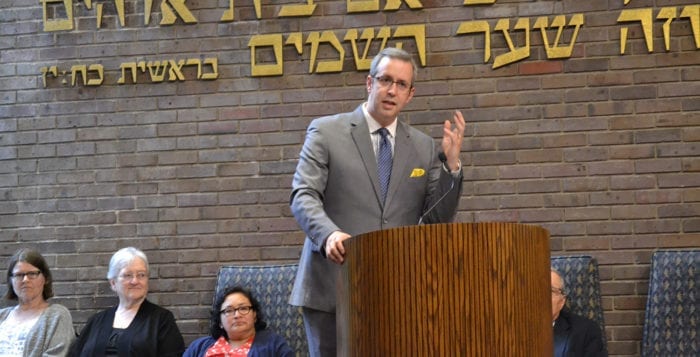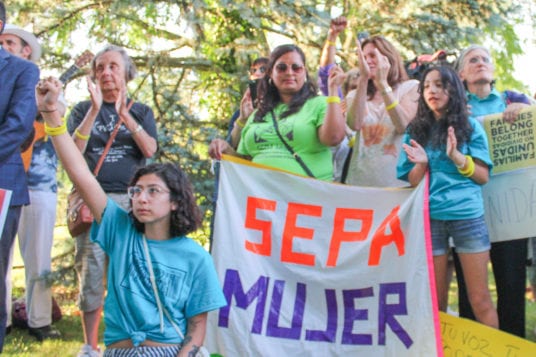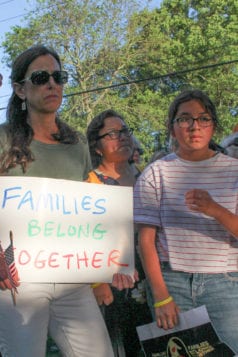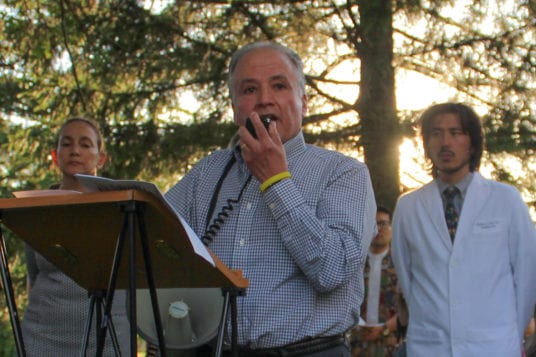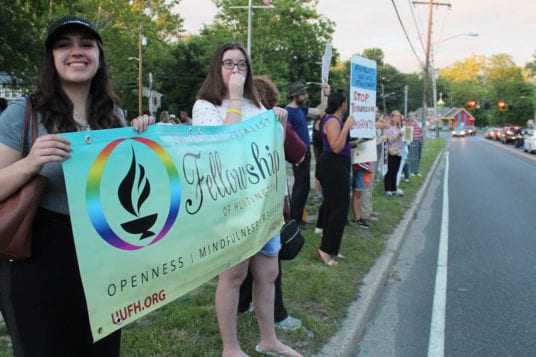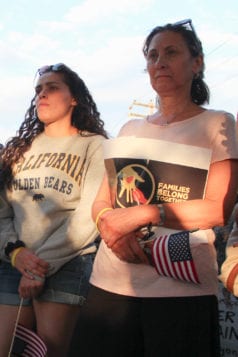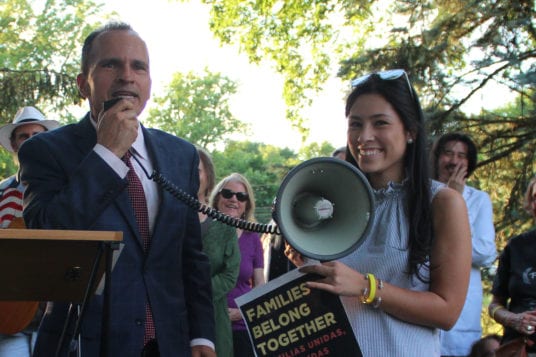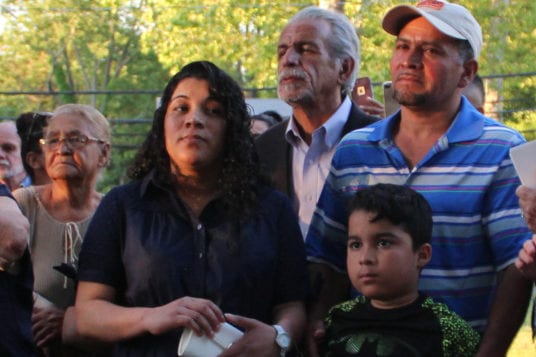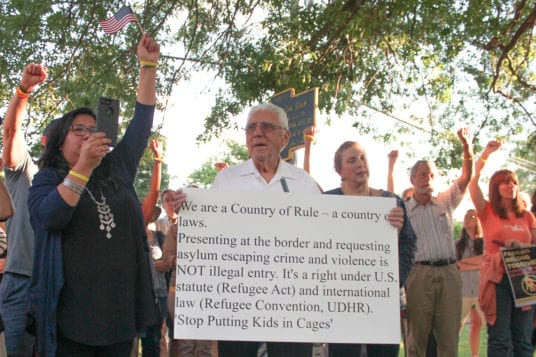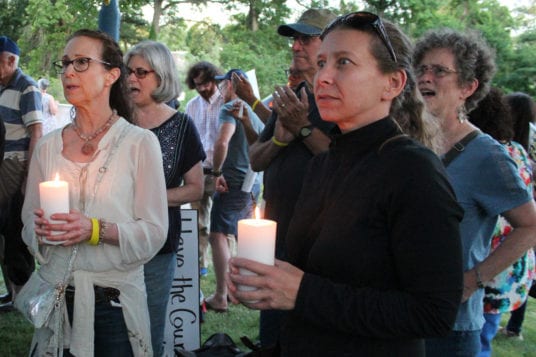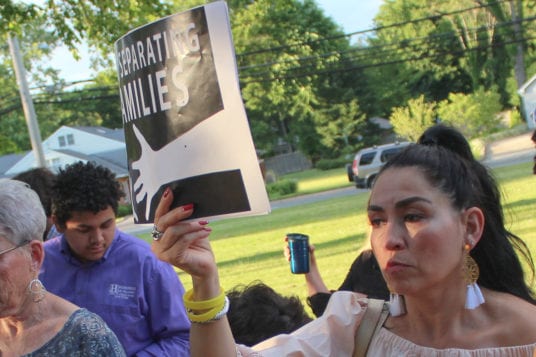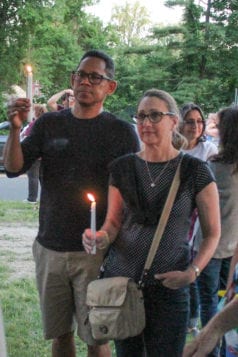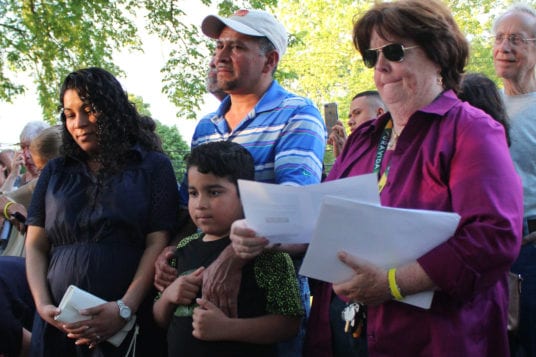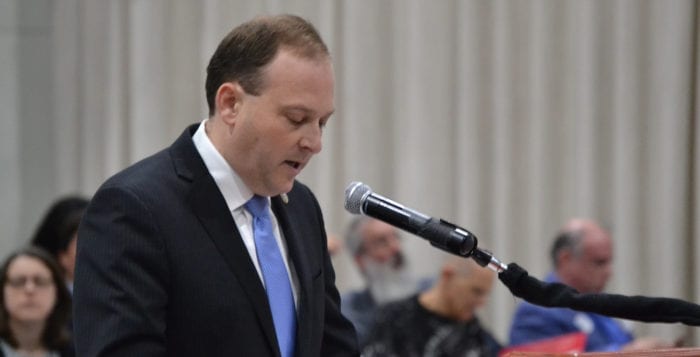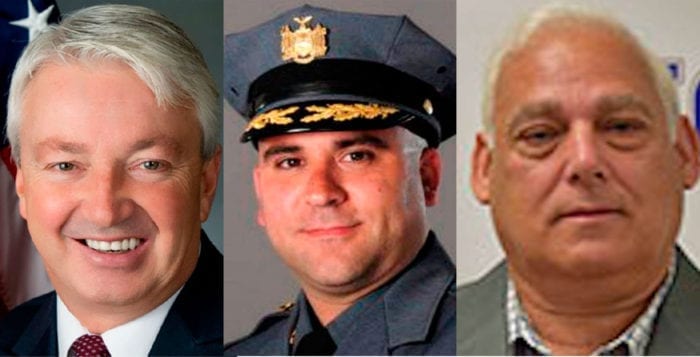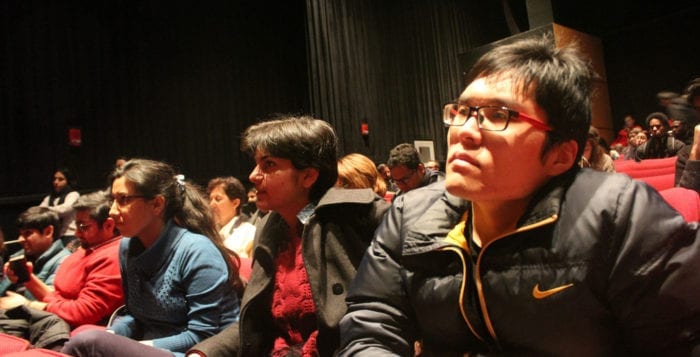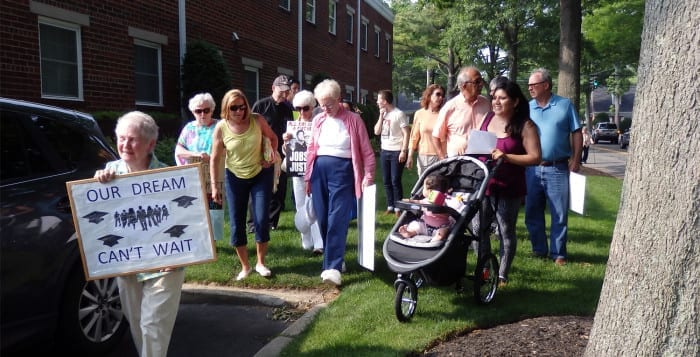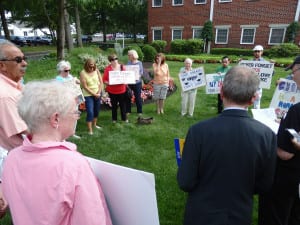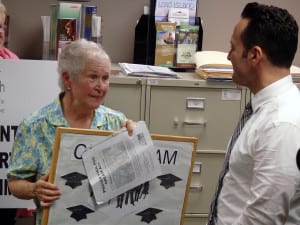Normally various religious leaders getting together at the same place and time sounds like the lead-in to a joke, but an event at North Shore Jewish Center in Port Jefferson Station June 24 was far from a laughing matter.
United States immigration policy, specifically the recently instituted “zero tolerance policy” by President Donald Trump (R) and his administration, which has resulted in the detention of several thousands of people and the separation of families attempting to cross the border together, was the topic of discussion during an interfaith vigil of prayer and unity at the Synagogue Sunday.
Reverend Richard Visconti of Stony Brook Community Church performs “Give Peace a Chance” with help from Haven Sellers at an interfaith prayer vigil regarding United States immigration policy June 24. Video by Alex Petroski
Rabbi Aaron Benson of NSJC, Reverend Richard Visconti of Caroline Church and Cemetery in East Setauket, Reverend Chuck Van Houten of Stony Brook Community Church, Irma Solis of Unitarian Universalist Fellowship at Stony Brook, Yousuf Sayed of the Islamic Association of Long Island, Rabbi Steven Moss of B’nai Israel Reform Temple and Reverend Kate Jones Calone of Setauket Presbyterian Church were among the speakers collectively denouncing the policy at the event.
“The goal is to inspire our community to advocate for national border and immigration policies guided by a basic sense of human dignity and worth for all people involved,” a press release announcing the event said. “America should be a country leading the world in compassion and human rights. In this moment, where our country falls short of that, the religious community continues to lead with morals and hope that our followers will stand together for these families.”
Moss, who also serves as chairperson for the Suffolk County Human Rights Commission, said the leaders of the represented faiths — Christianity, Judaism and Islam — were brought to the event through the foundations of religious traditions.
“We must stand firm, together — stand tall against these laws and rules, orders and directives that fail to protect the poor, the needy, the homeless, the immigrant — both legal and illegal — and their children from being mistreated, demonized, dehumanized and brutalized,” Moss said. “A government that fails to protect all people is not a government at all.”
Jones Calone, in addressing the dozens gathered at NSJC, likened what she described as the rising tensions brought about by the political otherization of migrants seeking refuge at American borders to sitting in a tub of water gradually getting hotter, adding it’s finally reached a boiling point.
It seemed unbelievable at first, reports that read like bad dreams — desperate mothers and fathers; transports in the middle of the night; cages; warehoused, crying children.”
— Kate Jones Calone
“This is, appropriately, a confession, because if it takes the horror of hearing warehoused children crying to make many Christians uncomfortable with what is usual, then it has taken too long,” she said, turning to her bathtub comparison, and saying the temperature has continued to rise every time the nation is silently complicit with the demonization of certain religions, with limits or bans on certain people from certain places or with violence against people not in power. “’How awful,’ we say — a response I’ve said, heard, felt many times over the past weeks to stories that seem like bad dreams trickling out slowly at first and then printed in line after line, video segment after video segment. It seemed unbelievable at first, reports that read like bad dreams — desperate mothers and fathers; transports in the middle of the night; cages; warehoused, crying children.”
Benson and the leaders, many of whom are members of the Three Village Clergy Council, indicated on a pamphlet handed out at the event that there are ways to help, directing those in attendance to familiesbelong.org, hias.org/take-action among others. He said the group is also planning on holding future events.
Trump signed an executive order last week designed to end family separations as the national attention to the story reached a critical mass, though as of press time around 500 of 2,300 separated parents and children detained apart at the U.S.-Mexico border have since been reunited. The policy has been both denounced by members of the Trump administration as a holdover Obama-era procedure and publicly cited as a new strategy intentionally instituted to deter asylum seekers from trying to come to America.

